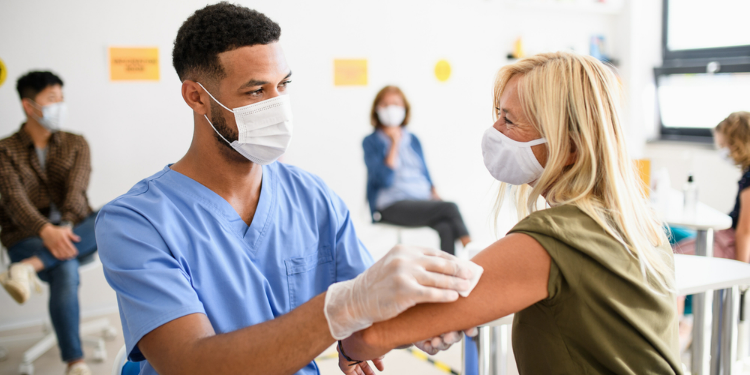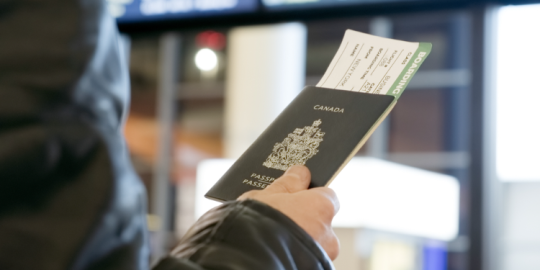Vaccination campaigns in decline
Although 60% of the global population is vaccinated, there are strong disparities, depending on the country. There are also disparities between population groups within countries. In China, where more than 88% of the population is fully vaccinated (two doses), there is resistance from seniors. Situations are similar in France, the United States and Greece. In January, Greece introduced a penalty for seniors who refused to get vaccinated. In countries like Indonesia, the Vatican and Austria, where vaccination is compulsory, there are fines. Meanwhile, China opted for financial incentives. But although governments are testing incentives and targeted campaigns, the results are not as expected.
However, it seems that Covid-19 is no longer scary. Vulnerable populations are no longer rushing to vaccination centers. In spite of new Covid waves, the gap between the vaccinated and unvaccinated people is widening. Besides, vaccination campaigns are running out of time as summer approaches in many countries. Let's not forget that a country's economic and geopolitical climate also has a significant role to play in the battle against Covid. Today, more people are wondering how to make it until the month's end rather than getting a booster shot. Therefore, governments have to adapt to this state of affairs and focus their vaccination campaigns on the most vulnerable groups, including seniors, children, populations at risk and remote areas where vaccines are less accessible.
Incentives to convince the elderly to get vaccinated
Locked down since the end of March, Shanghai mourns its first victims of the Covid. On Monday, April 18, Chinese authorities announced the death of three people aged 89 to 91 from Covid. According to them, these three people suffered from comorbidities. But overall, most Covid cases reported across the city are asymptomatic. Still, the government is concerned about the low percentage of vaccinated seniors. To date, only 60% of people aged over 60 are fully vaccinated (two doses). Barely half of those over 80 have received their booster dose. It's clear that the government is not going to drop its "zero Covid" until more older people get vaccinated.
However, foreign scientists point out that Chinese vaccines are not as reliable as others, although the death toll is considered low. Meanwhile, China highlights its exemplary management of the crisis. To boost vaccination for people aged over 60, many incentives are announced, including food, money and vouchers. But it seems that people no longer believe in the vaccine's efficiency against the virus.
In France, more than 450,000 people aged over 80 are not vaccinated at all, but these figures are unofficial. Although France was one of the leaders in Europe in terms of vaccination (77.9% fully vaccinated - two doses), it is currently unable to vaccinate its most vulnerable populations. On Thursday, April 7, the Minister of Health announced the second booster dose for people aged over 60s. Those over 80 have had access to it since March 14, but they are clearly not in a hurry to do so, although the Health Minister recalled the benefits of the vaccine. “We all know that when you are 60 years old and over, a booster dose reduces the risk of hospitalisation, resuscitation and death by 80%.
Vaccination of children
In Japan, only 6.1% of children aged 5 to 11 are fully vaccinated. 11.5% received one dose. The government officially launched its children's vaccination campaign in February, pointing out that many other countries have had positive effects. However, parents are reluctant, and the population doesn't seem to trust vaccines. They wonder about the use of vaccinating children and the risk of medium to long term side effects, although the Ministry of Health is providing evidence such as supporting diagrams, posters, press articles, etc. But all of them point out the benefit of the vaccine simply to reduce the risk of contamination. Besides, the new XE variant was discovered last Thursday in Japan. This variant has already been detected in the United Kingdom, Thailand and Israel.
The United States is having similar issues regarding the vaccination of children. However, the CDC (Center for Disease Control and Prevention) insists, with supporting studies, that immunisation is necessary. For instance, 87% of children who contracted the virus and were admitted to hospital between December 2021 and February 2022 were not vaccinated. Israel, Austria and Denmark where the first countries to allow vaccination for children aged 5 to 11 years from November 2021. Germany, France and Portugal targetted children at risk, focusing on education and play. In Germany, planes that are no longer in circulation serve as vaccination centres for 5-11-year-olds to take a fake flight. As a result, the children forget the fear of the injection and stamp their feet to receive their diploma. This initiative reassured parents.
Can everyone be vaccinated?
The WHO's main concern is to vaccinate the global population to end variants and the vaccine divide. In Africa, there hasn't been any improvement. In the beginning, there was a lack of vaccines, but today the country is receiving stocks of vaccines, many of which have already expired. This clearly shows that the Covax (the international solidarity program) has failed on many fronts -- delays in the delivery of vaccines, logistical difficulties, etc. When vaccines arrived, redistribution to vaccination centres across the country before they get expired was another issue. In early April, Kenya had to discard 840,000 doses of AstraZeneca vaccine from Covax, according to international media reports. Nigeria and South Sudan had similar problems with vaccines.
At the same time, the vaccination rate in Africa is still very low - barely 16% of the population. Here again, there are disparities between countries: Morocco and Rwanda are way ahead with, respectively, 61.3% and 62.5% of their populations vaccinated. Next come Tunisia (53.2, Mozambique (41.11%) and South Africa (30.3%). South Africa also introduced incentives (discount vouchers, gifts, etc.) to boost vaccination. Besides, the country manufactures vaccines. With Rwanda and Senegal, South Africa has entered into a partnership with the German BioNTech (creator of Pfizer), to produce its own RNA messenger vaccine, which governments hope will speed up the vaccine campaign.
















